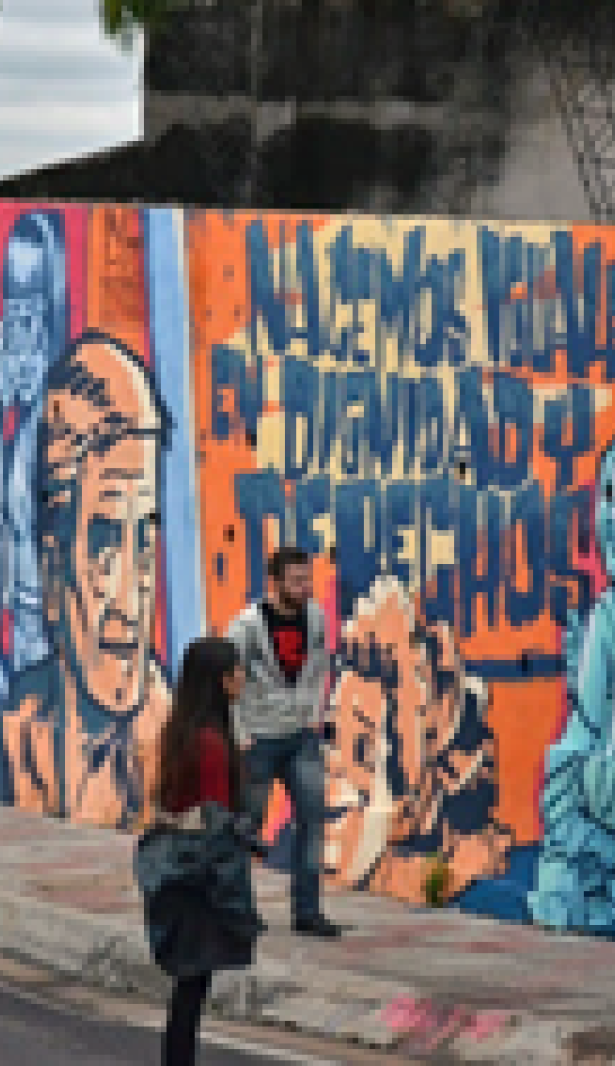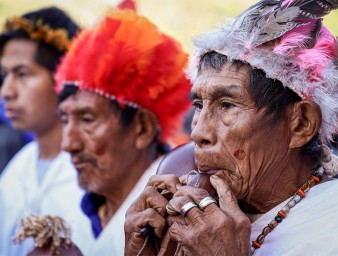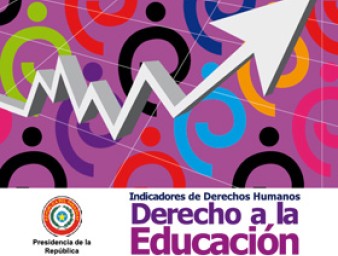Painting human rights
07 August 2014

Oz Montania was just 12 years old when he started using aerosols to draw and paint. Now, one of Paraguay’s best known street artists, Montania says he is driven to paint in the streets by events around him. Paintings that are ornamental only, are not for him, he says, listing as his influences local Paraguayan culture, music, indigenous tradition , politics and his immediate environment.
Montania’s latest project has exposure most artists can only dream of, located alongside one of Asunción’s major freeways. A collaborative venture with the UN Human Rights Office in Paraguay, the Ministry of Culture, the Ports Administration, and the Municipality of Asunción, Montania’s wall mural encourages the public to reflect on human rights, particularly respect for cultural diversity and the elimination of discrimination and intolerance.
This is the second collaboration between the Human Rights Office and Montania. A mural painted by him for Human Rights Day 2013, highlighted indigenous rights, particularly the decades-long struggle of the Sawhoyamaxa community for restitution of their ancestral lands. In 2006 the Inter-American Court of Human Rights ruled in favour of the community’s claim but it was not until June 2014 that a law returning a portion of their land was promulgated. .
The mural is now on display in Asunción’s Palacio de Justicia and has become a reminder of the important work of human rights defenders and their long struggle in the country.
Advocating awareness of and solutions to inequality and discrimination is a priority of the UN Human Rights Office in Paraguay. Human Rights Adviser Liliana Valiña says that despite recognition of the right to non-discrimination in the Constitution of Paraguay, discrimination based on social, ethnic, regional, cultural and urban-rural perceptions remains common.
Commenting at the launch of their latest collaboration, Valiña said: “We do not always understand that our differences enrich us as individuals and as a society. Paraguay has a very diverse culture reflected in their many different languages -Spanish, Guarani and other indigenous languages. If we acknowledge our diversity but also appreciate our common humanity, then we will be truly equal in dignity and rights.”
7 August 2014


